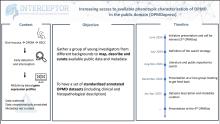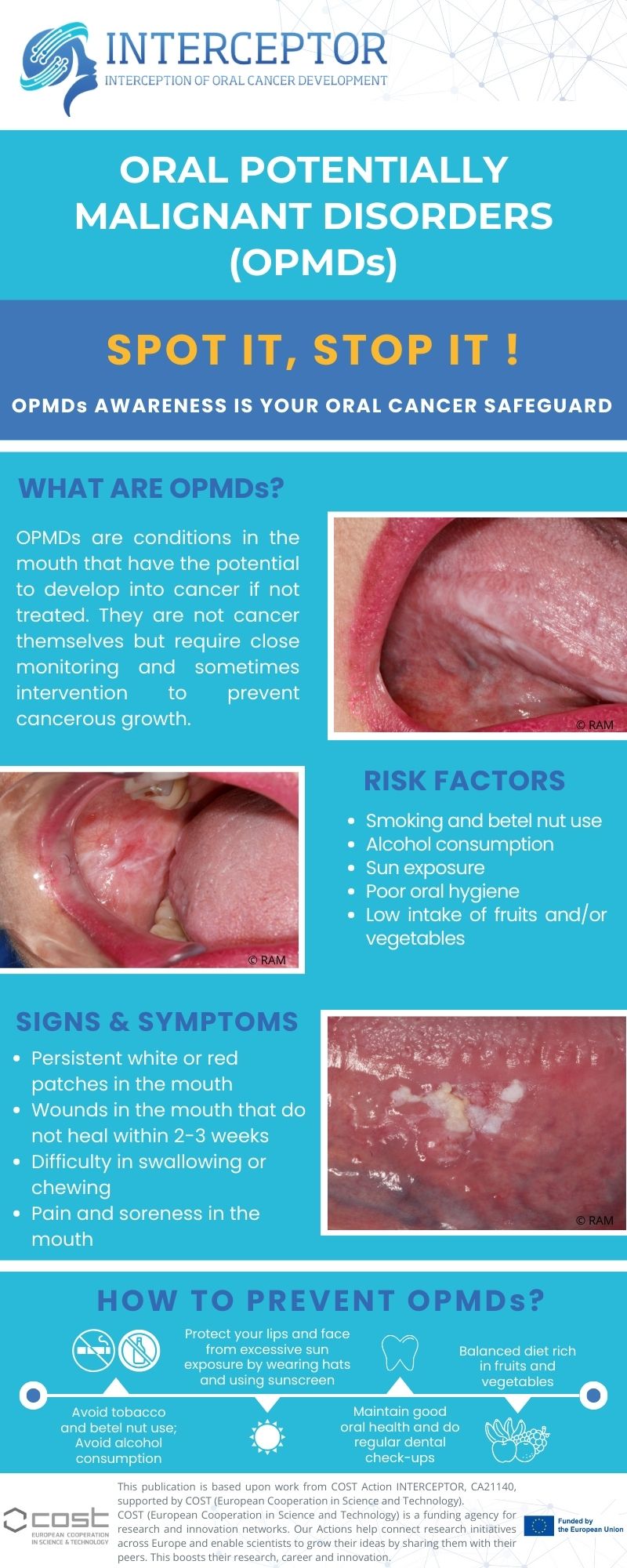OPMDxpress: Advancing the Understanding of Oral Potentially Malignant Disorders (OPMDs)
Project Objective:
The natural history of oral potentially malignant disorders (OPMDs) remains poorly understood. Identifying the biological mechanisms that drive malignant transformation is essential to improve early detection and develop effective preventive strategies.
With the rise of high-throughput transcriptomic technologies (such as microarrays and next-generation sequencing), many research teams have generated valuable datasets. However, these data are scattered across various repositories, inconsistently annotated, and often lack properly curated metadata—limiting their accessibility and reuse by the broader scientific community.
Our Initiative:
As part of the INTERCEPTOR COST Action, we are launching OPMDxpress, a collaborative effort led by a network of young, multidisciplinary researchers across Europe (including experts in biology, clinical research, data science, bioinformatics, and histopathology). The project aims to:
-
Systematically identify and map public datasets related to OPMDs, oral cancer, and normal oral mucosa.
-
Describe dataset characteristics (technology used, raw data availability, file formats).
-
Curate and standardize metadata to improve quality and interoperability.
-
Share curated datasets with the INTERCEPTOR network and the broader scientific community.
Project Timeline:
-
June 2024 – Initiative launch at the 3rd OPMDay with a call for interest.
-
July 2024 – Definition of search strategy.
-
August–November 2024 – Literature and public repository mining.
-
December 2024 – Interim presentation to INTERCEPTOR Core Group for feedback.
-
January–April 2025 – Dataset annotation and metadata curation.
-
May 2025 – Final presentation at the 4th OPMDay.
Expected Outcomes:
OPMDxpress directly supports WG1 (Data Science & Medical Informatics) and WG4 (Preclinical and Clinical Research for Prevention). The initiative will:
-
Enhance interdisciplinary collaboration within INTERCEPTOR.
-
Accelerate translational research in OPMDs.
-
Align with the FAIR principles—ensuring data are Findable, Accessible, Interoperable, and Reusable.







